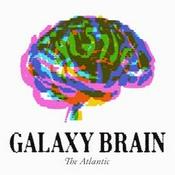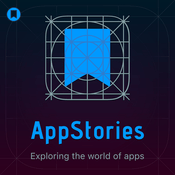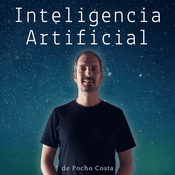27 episodios
- Mixture of Experts (MoE) models are a type of neural network architecture designed to improve efficiency and scalability by activating only a small subset of the entire model for each input. Instead of using all available parameters at once, MoE models route each input through a few specialized "expert" subnetworks chosen by a gating mechanism. This allows the model to be much larger and more powerful without significantly increasing the computation needed for each prediction, making it ideal for tasks that benefit from both specialization and scale.
Our Sponsors: Certification Ace https://adinmi.in/CertAce.html
Sources:
https://arxiv.org/pdf/2407.06204
https://arxiv.org/pdf/2406.18219
https://tinyurl.com/5eyzspwp
https://huggingface.co/blog/moe - Meta AI has announced the Llama 4 family of large language models, highlighting two initial releases: Llama 4 Scout and Llama 4 Maverick. These new models feature native multimodality and an innovative mixture-of-experts architecture for enhanced efficiency and performance. Llama 4 Scout excels with a 10 million token context window, while Llama 4 Maverick demonstrates top-tier capabilities in understanding both text and images. These models were trained using distillation from a larger, more powerful model called Llama 4 Behemoth, which is currently still in training. Meta is making Llama 4 Scout and Llama 4 Maverick available for download to encourage open innovation and integration into various applications, including Meta AI features across their platforms. The release signifies a new phase for the Llama ecosystem, emphasizing advanced intelligence and practical usability.
- This research article offers a comprehensive overview of deep learning (DL), positioning it as a vital technology within the Fourth Industrial Revolution. It meticulously examines various DL techniques, categorising them into supervised, unsupervised, and hybrid approaches, while also highlighting their diverse applications across sectors like healthcare, cybersecurity, and natural language processing. The paper further discusses the properties and dependencies of DL, differentiating it from traditional machine learning. Finally, it identifies key research directions and future aspects for advancing DL, aiming to serve as a valuable guide for both academic and industry professionals.
Source: https://www.researchgate.net/publication/353986944_Deep_Learning_A_Comprehensive_Overview_on_Techniques_Taxonomy_Applications_and_Research_Directions
Download Certification Ace on App Store and Play Store now! - Researchers introduced AlphaDev, a deep reinforcement learning agent, that discovered faster sorting algorithms by framing the problem as a game played with CPU instructions. This AI agent outperformed existing human-developed benchmarks for small sorting routines, leading to their integration into the LLVM standard C++ sort library, a widely used component. AlphaDev achieved these improvements by optimizing for actual measured latency at the CPU instruction level, even finding novel instruction sequences called "swap move" and "copy move." The study also demonstrated AlphaDev's potential to generalize to other algorithm optimization challenges beyond sorting, such as protocol buffer deserialization, suggesting a new approach to fundamental algorithm discovery.Source: https://www.nature.com/articles/s41586-023-06004-9
- This collection of sources centres on Microsoft's development of the Majorana 1 chip and its implications for quantum computing. The document explores the potential of topological qubits based on Majorana fermions to overcome limitations of existing superconducting qubit technologies from companies like IBM and Google. It highlights the necessity of achieving a million qubits for fault-tolerant quantum computing and discusses potential applications in cryptography, drug discovery, AI, and optimisation. The document also outlines the challenges in scaling quantum computers and Microsoft's roadmap for achieving a functional quantum supercomputer. Furthermore, it analyses Microsoft's competitive position and the potential impact of Majorana 1 on various industries.
Source: https://www.researchgate.net/profile/Douglas-Youvan/publication/389169814_Microsoft's_Majorana_1_A_Paradigm_Shift_Toward_Scalable_and_Fault-Tolerant_Quantum_Computing/links/67b757c2207c0c20fa8f5d36/Microsofts-Majorana-1-A-Paradigm-Shift-Toward-Scalable-and-Fault-Tolerant-Quantum-Computing.pdf
Más podcasts de Tecnología
Podcasts a la moda de Tecnología
Acerca de Tech made Easy
"Welcome to Tech Made Easy, the podcast where we dive deep into cutting-edge technical research papers, breaking down complex ideas into insightful discussions. Each episode, two tech enthusiasts explore a different research paper, simplifying the jargon, debating key points, and sharing their thoughts on its impact on the field. Whether you're a professional or a curious learner, join us for a geeky yet accessible journey through the world of technical research."
Sitio web del podcastEscucha Tech made Easy, The Interface y muchos más podcasts de todo el mundo con la aplicación de radio.net

Descarga la app gratuita: radio.net
- Añadir radios y podcasts a favoritos
- Transmisión por Wi-Fi y Bluetooth
- Carplay & Android Auto compatible
- Muchas otras funciones de la app
Descarga la app gratuita: radio.net
- Añadir radios y podcasts a favoritos
- Transmisión por Wi-Fi y Bluetooth
- Carplay & Android Auto compatible
- Muchas otras funciones de la app


Tech made Easy
Escanea el código,
Descarga la app,
Escucha.
Descarga la app,
Escucha.



































